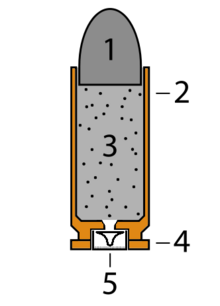Talk:primer
I changed the category tag (back) to a category that actually exists instead of '"British" heteronyms'. I think that if a major portion of the English world thinks it's a heteronym, it should be on the list of English heteronyms; and let the individual entries specify that it isn't pronounced as a heteronym in the American/Commonwealth/whichever dialect of English. Beobach972 17:02, 2 July 2006 (UTC)
Is there corroboration for the assertion that the "primmer" pronunciation for textbook is the UK version? Having spent a long time in the UK education system, I'd never heard this usage until last week, and then by an American English speaker. Dictionary.com has it the other way round, too. --EvilKOLBot 11:21, 21 December 2006 (UTC)
- I've been led to believe that the "primmer" pronunciation is correct for the "introduction" meaning, while the "prime-er" pronunciation is correct for the liquid one applies before painting. I am an American. --Evil1987 14:38, 11 July 2007 (UTC)
- Removed Textbook pronunciation:
(1) the US pronunciation was the as that given for other senses
(2) the UK pronunciation (homophonous with primmer, unverified for 4 years and now removed) seemed spurious, questioned in 2006 the only comment was from an American.
This rfv seemed to have lain dormant for too long! —Saltmarshαπάντηση 05:25, 21 October 2010 (UTC)
- Removed Textbook pronunciation:

The following discussion has been moved from Wiktionary:Requests for verification (permalink).
This discussion is no longer live and is left here as an archive. Please do not modify this conversation, but feel free to discuss its conclusions.
Rfv-sense: "Any substance or device used to ignite a fire, (especially) any priming wire, blasting cap, or other device used to ignite gunpowder or other explosive."

1. the bullet, as the projectile;
2. the case, which holds all parts together;
3. the propellant, for example gunpowder or cordite;
4. the rim, which provides the extractor on the firearm a place to grip the casing to remove it from the chamber once fired;
5. the primer, which ignites the propellant.
I believe this is inaccurate. Looking at other dictionaries and usage in the web, it seems to me that "primer" is seldom if ever used of a substance or device that is used to light a fire, such as campfire or fire in an oven. Am I right? Should it rather read like this, for example:
- Any substance or device, such as a priming wire or blasting cap, used to ignite a main explosive.
--Hekaheka (talk) 05:32, 17 January 2018 (UTC)
RFV-resolved - definition tweaked and cited. Kiwima (talk) 09:33, 17 February 2018 (UTC)
Switched Sound Files[edit]
The sound files for the US and US (irregular) pronunciations of etymology 1 are switched; they don’t match up with the IPA transcriptions (which are correct). Not sure if I should go ahead and change them or what. Andyharbor (talk) 04:28, 11 March 2022 (UTC)
I assume this is passive aggressive editing. Certain pedants insist the less common pronunciation is the correct one and the more common one is "irregular". Dantai Amakiir (talk) 14:29, 21 August 2022 (UTC)
Pronunciation wrongly labelled "irregular"[edit]
"(US, irregular, but common; borrowed from Etymology 2): IPA(key): /ˈpɹaɪmɚ/" There's nothing "irregular" about that. On the contrary, the pronunciation with a diphthong is regular based on standard English rules of spelling and pronunciation and the relationship with words like "prime" and "primary" that have a similar etymology. It is the traditional/standard US pronunciation that is the irregular one!